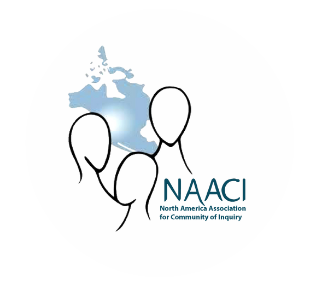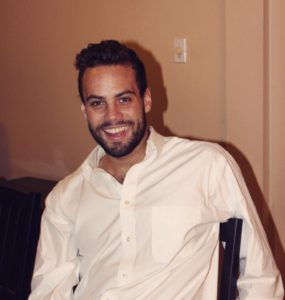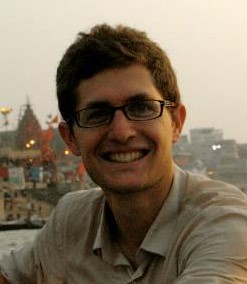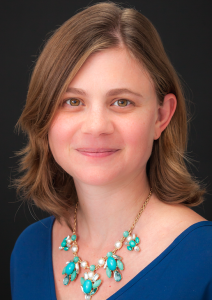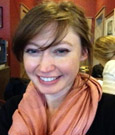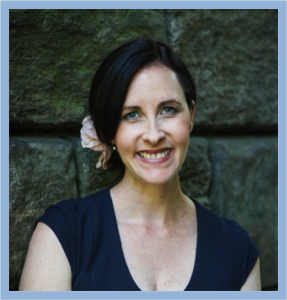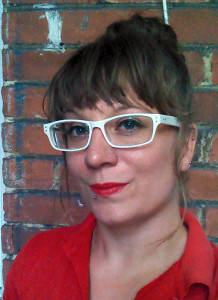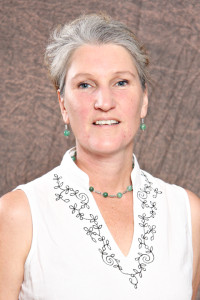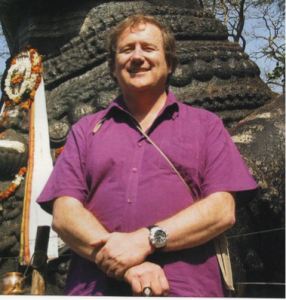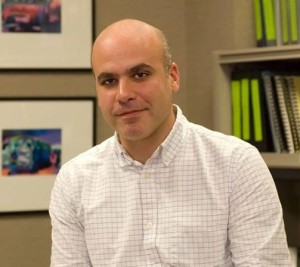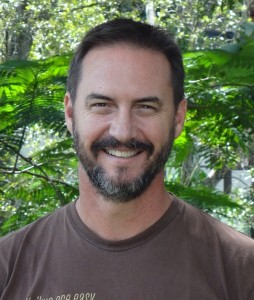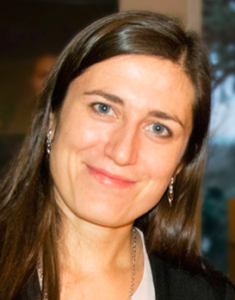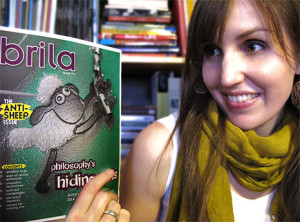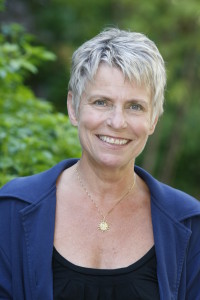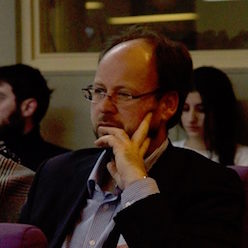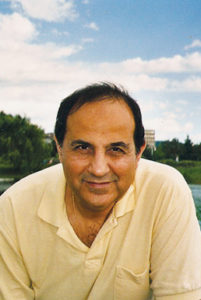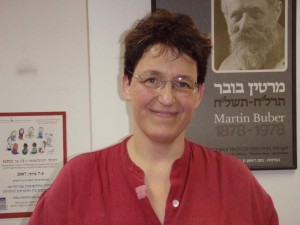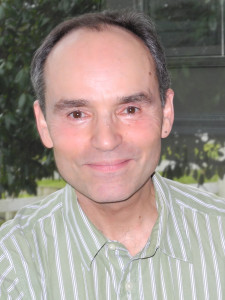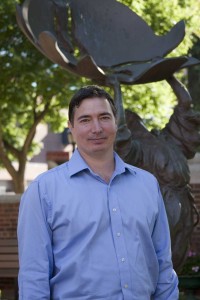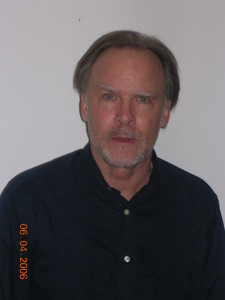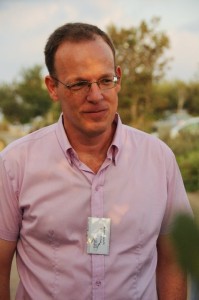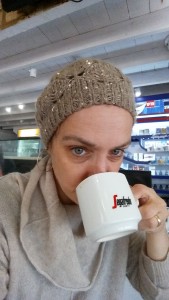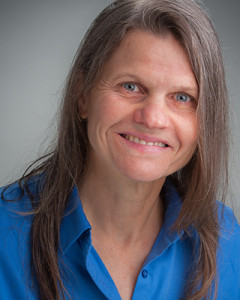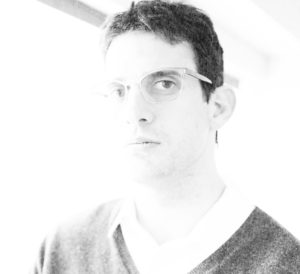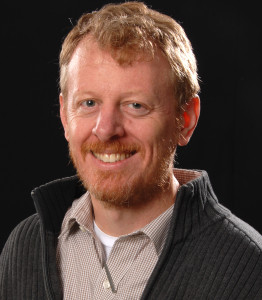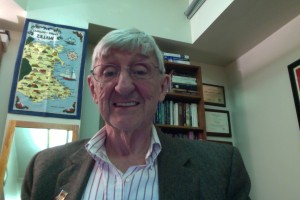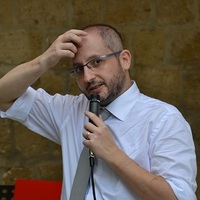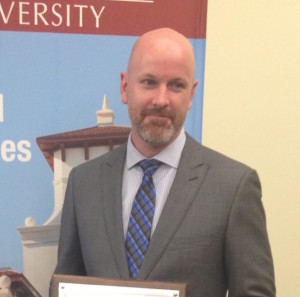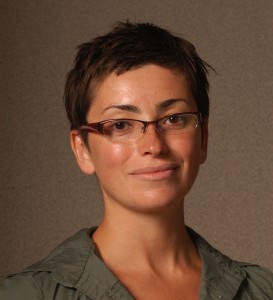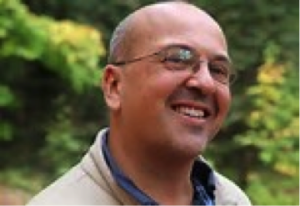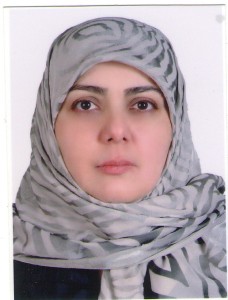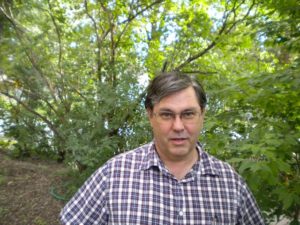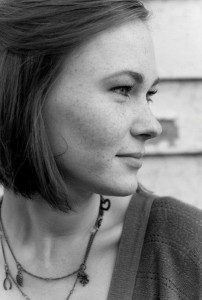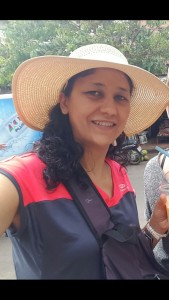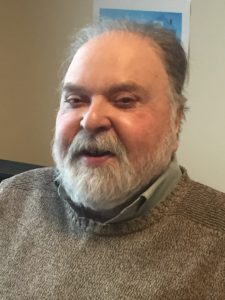List of Presenters
Click on the letter of the last name for presenter biography & presentation information
 Ellie Abdi
Ellie Abdi
Ellie Abdi is a former gymnast and coach, currently a physical, health and dance education teacher and professional development coordinator for Department of Health and Physical Education in addition to research and teacher leader for East Orange School District in New Jersey. She is also a Clinical Faculty member at College of Education and Human Services at Montclair State University. Furthermore, Ellie is an Editorial Board Member for 2 peer-reviewed journals, the World Academy of Science, Engineering & Technology, and International Journal Series of Multidisciplinary Research. As the vice president of physical education at New Jersey Association for Health, Physical Education, Recreation and Dance (NJAHPERD), Ellie represented New Jersey’s health and physical education teachers and students at the Congress, 2 times. A writer and presenter of various papers and workshops in the United States and France with a Masters of Education in Philosophy for Children from Montclair State University and a doctoral studies in Educational Leadership from Northcentral University in Arizona. Ellie’s research, interviews and articles have been published in various journals and sites. Her 1st book on Diversity and Educational Leadership was recently published
Understanding Community of Inquiry Across The Physical Education And Dance Disciplines
Abstract: The purpose of this theoretical framework review is to understand the community of inquiry across the physical and dance education. Community of inquiry research in physical and dance education is almost non-existence and a very small amount of consideration is paid to this educational discipline in comparison to overly dedicated efforts in other areas. Physical and dance educators are school or districts leaders in human kinetic but also stewards in ethics who through verbal and non-verbal movement based activities, community of inquiry is formed and examined to guide ethical responsibilities and universal values. This is a theoretical review with configuration strategy to establish credibility to justify this argument through evidence.
Daniel Anderson has a philosophy honours degree from the University of British Columbia, and currently serves as an Associate Director for the Vancouver Institute of Philosophy for Children. Daniel is also an Associate Director at Think Fun Camps, which runs a children’s philosophy program during the summer at the University of the Frazer Valley. Daniel’s primary philosophical interests include moral education, moral motivation, animal ethics and the politics of identity.
The Jumanji Effect: Procuring Agent Investment In Communal Inquiry Through Role Playing Games
Abstract: Practitioners of Philosophy for Children often experiment with the use of engaging media, such as storybooks and games, in order to procure agent investment. However, games and stories are often confronted with a problem. In their quest to be engaging, these media often distance themselves from reality. In turn, this distance may threaten to undermine agent investment by causing agents to “shrug-off” or discount their gaming experiences under the presumption that it was “just a game.” In response to this problem, this paper proposes identifying and constructing stimuli that have the “Jumanji Effect” on agents, which refers to a stimulus’s ability to minimize or eliminate the perceived distance between a fictional context and reality. This effect helps ensure that agents see their in-game behaviour as capable of both predicating and shaping their identity. In this paper it will be argued that roleplaying games are especially well-engineered to catalyze investment. In particular, they force agents to “inhabit” mora dilemmas by having them actively participate in a living story. This, in turn, provides facilitators the novel opportunity to use participants’ own choices as the basis for philosophical inquiry, thus greatly increasing the likelihood of agent investment. This paper draws its support from the pedagogical frameworks of both Dewey and Lipman, and the game design research of McGonigal and Howard among others. This paper contains may importantly suggest that we ought to revise many of the stimuli currently in circulation in order to ensure that they have a practical effect on agents. Furthermore, this paper provides a practical metric by which educators can assess the philosophical efficacy of media, such as games, going forward.
Biography: Forthcoming
Using Engaged Philosophical Inquiry to Deepen Young Children’s Understanding of Environmental Sustainability
See “Margaret McDonald” for abstract.
Stephanie Burdick-Shepherd’s research looks at childhood, culture, and the profession of teaching. She currently teaches at Lawrence University where she is implementing a new elementary education certification route focused on an apprenticeship model for clinical practice. Recent publications include: “Rediscovering Morality through the Concept of Childhood” in the NSSE 2013 Yearbook, A Moral Critique of Contemporary Education. And “Reading Feminist Hospitality: Possibilities for Education,” in Feminism and Hospitality. She earned her PhD in 2014 from Teachers College, Columbia University.
Are We Teaching and Are They Learning?
Abstract:The current climate of standardization in education challenges teacher preparation programs to find ways to engage pre-service educators in authentic reflective practice. I propose use of the practice of a Community of Philosophical Inquiry (CoPI) alongside the clinical experience positions the pre-service educator towards greater reflection. Research suggests that the pre-service clinical experience greatly influences professional success. Evidence overwhelmingly points out that high quality clinical experiences provide best teacher preparation outcomes. High quality clinical experiences are driven by pupil-focused learning, grounded in evidence-based practices, and focused on reflection. Use of the CoPI creates a space for pre-service educators to consider the clinical setting as an experience that is open to adjustment and change, i.e. to see it as a space that invites reflection.
Cristina Cammarano
Biography & Picture Forthcoming
Becoming Philosophical: Looking at Transformative Changes in Philosophical Thinking with College Students Who Practice Philosophizing with Young Children Using Community of Inquiry
Abstract Forthcoming. Presentation will be done via Skype.
Assistant Professor with a Ph.D. and M.A. in Philosophy (The University of Memphis, 2012). Dr. Carr’s areas of specialization include Ethics, Feminism, Philosophy for Children, Kant, and Post-Structuralism. She teaches Introduction to Philosophy, Ethics and Moral Issues, Medical Ethics, and Philosophy of Gender and Sex. She recently finished work on her first book, Deleuze’s Kantian Ethos: Critique as a Way of Life, scheduled for publication with Edinburgh University Press in Summer 2017.
CUNY LaGuardia’s Agora Initiative: A Feasibility Study of Philosophy for Children Outreach at the Community College Level
Abstract: Is it possible to develop a successful Philosophy for Children (P4C) program at the community college level? This question is important given ongoing debates concerning the necessary preparation for effective P4C teaching. In this presentation, we discuss how findings from The Agora Initiative affirm Thomas Wartenberg’s position that “[y]ou don’t have to know any philosophy to teach it” and demonstrate the value of bringing community college students into P4C classrooms. While the debate about preparation cannot be resolved outside of practice, initial findings suggest that a community college P4C program would produce a double pedagogical effect: students help children develop critical reasoning skills while improving their own reasoning skills via their teaching. If future data bears out these findings, the question will no longer be whether P4C is possible at a community college. Instead, the question will be whether any other approach to P4C is as promising
Rickard Chadsey teaches English, Philosophy 11 and 12 and Literature at Sardis Secondary School, a Senior High School, in Southern British Columbia, Canada. He earned his B.Ed from UBC majoring in English, and his MA in Theological Studies from Regent College. He has taught Theatre 11/12, Honors English, Literature and Advanced Placement English Literature and Composition. In 2007 he began to teach Philosophy 11 and 12 at Sardis Secondary.
Networking Smart Bombs: Creating Communities of Inquiry Using High-School Philosophy Programs
Abstract:
Participants of this workshop are typically interested in the theory or practice of teaching Philosophy to teenagers in the public school system. We will discuss the factors that make possible starting a high-school Philosophy class, and strategies for running a successful program. In particular, we will stress the links between High School Philosophy classes and broader Communities of Inquiry. This workshop will be particularly helpful to those interested in understanding the development of Communities of Inquiry involving adolescents and those wishing to further the teaching of Philosophy for teenagers and children both in public education and in private lives.
Dr Sarah Davey Chesters’ research interests include the comparisons between various models of dialogue and the development of multi-dimensional thinking. In 2012 she published a book based on her research entitled The Socratic Classroom: Reflective Thinking through Collaborative Inquiry (Sense Publishers) and in 2013 a co-authored classroom resource Philosophical and Ethical Inquiry in the Middle Years and Beyond (Australian Curriculum Studies of Australia, co-authored with Lynne Hinton, Liz Fynes-Clinton and Rosie Scholl)
Kindness Education: Creating a Culture of Actionable Compassion Through Community of Philosophical Inquiry
Abstract:
This paper will ask what we mean by kindness in education by undertaking a conceptual analysis of the term in relation to its cognate terms caring, compassion and empathy. It will draw on CPI literature from Matthew Lipman to Ann Sharp and wider feminine literature from Carol Gilligan to Annette Baier. It will also systematically evaluate the philosophical roots of kindness from Rousseau to Locke and how this applies to education specifically. It will seek to gain an understanding of how kindness relates specifically to philosophical and ethical inquiry. It will suggest practical ways that kindness can be addressed in the classroom by looking at its application across the disciplines and give examples of practical classroom actions. The session will end with a practical approach to classroom practice and group discussion.
Anne Brel Cloutier has a Master degree in Philosophy and cognitive science from the Institute of Cognitive Science at University of Quebec in Montreal (UQAM). She also studied the Lipman & Sharp’s Community of Inquiry (CPI) method with Sasseville at Laval University where she obtained the Philosophy for Children Certificate. Her thesis focuses on the importance of metacognition for the development of logical reasoning and explains how CPI consists in a metalogical tool for learning.
Fostering the Development of Logical Reasoning in the Community of Inquiry Through the Increase of Meta-Logical Understanding
Abstract:
Piaget’s theory of the development of rationality claimed that children are not born logical and that logical reasoning only appears progressively up to adolescence. His theory was criticised for diverse reasons, but the false belief about illogical children and logical adults stayed and is strongly anchored in our conceptions of rationality. Inspired by Moshman (Nebraska-Lincoln), that offers a new reading of Piaget’s theory, I argue that it is a mistake to see children as beings who are not logical. On the contrary, they happen to be logical at a very young age. I, however, understand the development of rationality at a metalogical level. The basic distinction between logic and metalogic rests in one’s acknowledgment of one’s own inferences. When thinking, children understand logical causality. Rationality, though, requires a more complex understanding of logic, including reflections and coordination on diverse inferences made by self and others, thus generating new knowledge. In order to become aware of one’s logical inferences, it is necessary to make them explicit and that process occurs during peer interaction. I argue that, if practiced with a special attention to its metacognitive aspects, CPI used in P4C can constitute the perfect way to put Moshman’s theory into practice as a pedagogical strategy. In P4C, we commonly witness participants expressing rational and logical thoughts; the metalogical aspects of the CPI methodology has multiple underlying strategies that could foster the development of rational and logical thinking which is clearly evident amongst participants in CPI. We will discuss how these strategies consist in metacognitive and metalogic strategies and put forward the possibility of building a toolbox for the development of metalogical thinking in order to harness and improve logical reasoning.
Dr Karen Collett currently works as a lecturer and researcher in the Faculty of Education at the University of the Western Cape. She lectures in the areas of educational leadership, Health Promoting Schools and research. Her doctoral thesis focused on the subject of school leadership and teacher well-being. In 2014 and 2015 she coordinated and taught on an Advance Certificate in Education programme for school leadership development. Since 2009 she has been the project leader of the Teacher Well-Being Project a collaborative partnership between the Teacher In-Service Project (TIP) and the South African Democratic Teachers Union (SADTU). For the past twenty one years she has worked in the area of school and leadership development, educational change and the development of Health Promoting schools. Her career in education has spanned school development work in South African and Namibia. Her current interest in the area of cognitive education and the role of leadership in school brings coherence and depth to her engagement in school improvement practices.
Philosophy with Children for School Leaders: A Top Down Approach to Implementation in Schools
Co-Author – Not In Attendance
See “Lena Green” for abstract
Robert S. Corrington is the Henry Anson Buttz Professor of Philosophical Theology in the Graduate Division of Religion of Drew University in Madison, NJ. He is the author of eleven books and some eighty articles articulating his perspective of Ecstatic Naturalism. Two of his most recent books are: Nature’s Sublime: An Essay in Aesthetic Naturalism, and Deep Pantheism: Toward a New Transcendentalism. He has long been concerned with the dialogue between Classical American Philosophy (with a book on C.S. Peirce) and Continental Phenomenology. He has developed the method of ordinal phenomenology as a corrective to other forms, such as the transcendental or hermeneutic. Further, he has spent years working with the psychoanalysis of Freud, C.G. Jung, Wilhelm Reich (with a book on Reich), and Otto Rank. His current book project has the working title, Nature and Nothingness.
Natural Versus Interpretive Communities: Signs of Violence Versus Signs of Query
Keynote Speech:
In this address I compare and contrast the two extremes of community currently operative in the world. Natural communities, the inferior form, are deeply tribal and intrinsically violent. I am especially concerned with identity formation and the oft-found correlation between religion and violence in such communities, using Reich’s key concept of the “emotional plague” to explain the spread of violence in natural communities. Signs and interpretants are flattened out and controlled by power structures and a kind of inertial drift. At the other end of the spectrum are communities of interpretation that have reduced violence and tribalism by a sustained, if fragile, focus on creating novel and enriched interpretants. The key mode by which interpretive communities function is by query—a kind of inventive wonder. Query is radically inclusive of the Other and is creative in its delineation and articulation of signs, objects, and interpretants. Its metaphysics is that of ecstatic naturalism that welcomes the eruptions that come to the Selving process from out of the heart of nature naturing (natura naturans) as manifest in the orders of nature natured (natura naturata).
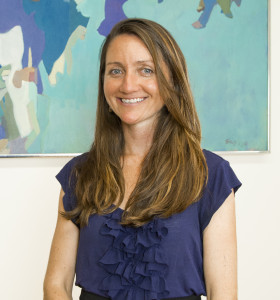 Jessica Davis
Jessica Davis
Jessica Davis, doctoral student in the Philosophy and Education program at Teachers College, Columbia University, holds an MA and BA in Philosophy from San Diego State University. She completed her master’s thesis on the topic of a philosophy-based high school. She is an adjunct instructor for various institutions, and has taught philosophy to students from the elementary to the graduate level. She recently co-organized the inaugural NYC High School Ethics Bowl. She is completing her dissertation on the work of JH-acques Rancière.
Rancierian Assumption(s) of Equality within Communities of Philosophical Inquiry
Abstract:
I will address the key reasons that Jacques Rancière’s conception of equality may or may not be represented within the practice of, and advocacy for, Community of Inquiry (CI). Ultimately, I am grappling with Rancière’s insistence that there can never be an emancipatory school. Does this mean, too, that a CI (because there is some order and structure to it — it is ‘policed’) can never be emancipatory? Rancière argues that we can improve schools by bringing to light the ever-present tensions of social institutions. Can we do this with CI’s, and if so, how exactly? It is my hope that this paper contributes to scholarship surrounding notions of equality used in the practice of, and the advocacy for, CI, as well as scholarship on the applications of Rancière’s concepts.
Darryl De Marzio is Chair and Associate Professor of Foundations of Education in the Education Department at the University of Scranton. He teaches graduate and undergraduate courses in educational psychology, foundations of education, and the philosophy of education. His main areas of scholarship include philosophy for children, the ethics of teaching, humanistic teacher-education, and the philosophy of Michel Foucault. This past year, Darryl received an internal grant to conduct a university-wide interdisciplinary faculty seminar on Childhood in the Thought of the Early Church Fathers at the University of Scranton. Select publications include, “Dialogue, the Care of the Self, and the Beginning of Philosophy,” Thinking: The Journal of Philosophy for Children (2009); “What Happens in Philosophical Texts: Matthew Lipman’s Theory and Practice of the Philosophical Text as Model,” Childhood & Philosophy (2011); and, “Modern Art, Cynicism, and the Ethics of Teaching,” Philosophy of Education Yearbook (2012). Darryl has also served as President of the Middle Atlantic States Philosophy of Education Society.
The Model Theory of Community of Inquiry
Abstract:
In this paper I argue that Matthew Lipman’s theory of a community of inquiry is a model theory. I use the notion of a model theory to emphasize Lipman’s vision of the community of inquiry as both a model of certain philosophical behaviors and practices (asking for reasons, offering counterexamples, etc.) and a model for community in general (that salutary community life is reflective, democratic, self-correcting, and so forth). In other words, Lipman’s theory of a community of inquiry rests upon the notion of a model in these two senses. I also argue that it is in this manner of being a model theory that Lipman’s notion of community of inquiry is precisely an educational paradigm—which is to say that by virtue of its modeling function the community of inquiry is formally educative, or that the form of the community of inquiry follows its function.
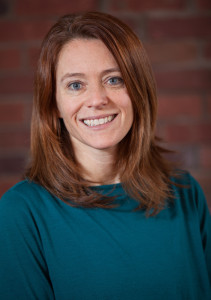
Sarah Donovan
Sarah K. Donovan holds a Ph.D. in philosophy from Villanova University. She is an associate professor in the Department of Philosophy and Religious Studies at Wagner College in New York City. Her teaching and research interests include feminist, social, moral, and Continental philosophy. She has taught in Wagner’s learning community programs since 2003, and has recently been appointed the Faculty Coordinator to the Port Richmond Partnership Leadership Academy.
Service-learning and CPI in the college classroom: Balancing content with critical and creative thinking
Abstract:
Integrating service-learning into philosophy courses, and bringing this curriculum to high school students from a vulnerable community, has made me reflect on how I, as a college professor, can do more to serve my local community, and young people in particular. I am uncomfortable with what I experience as sharp divides between K-12 and college level education (especially in vulnerable communities). While I realize that many talented educators are trained in, and devoted to, bridging the divides, I wonder how discipline specific educators, like me, can utilize CPI to become more involved (among the other goals that I have for my students).
Peter is the director of the university of Queensland Critical Thinking Project, and a lecturer in critical thinking and in teacher education. He has taught in high schools for many years, most recently as Head of Experimental Science at the Queensland Academy. Peter is a member of the Queensland State Review Panel for Philosophy in high schools and is the Chief Examiner for external Physics. He is also a consultant for the International Baccalaureate Organization in curriculum design. His work focuses on the nature of critical thinking and how to teach it.
The Educational Community of Inquiry as Disruptive Pedagogy
Abstract:The idea of disruptive technology – technology with the potential for creative destruction of existing business models – was first given form by Christensen. Christensen contrasts disruptive technologies with sustaining technologies, in which current practices are incrementally and periodically improved, though with the risk of improvement plateauing over time. Certain educational practices can also be seen as disruptive or sustaining. Sustaining educational practices, like sustaining technologies, attempt to refine existing processes with a view to moving further along an established outcomes path. Disruptive educational practices, however, like disruptive technologies, will not fit current models and attempts to accommodate them within such models create unsustainable tension. The educational community of inquiry has the hallmarks of such disruption. In this presentation, I will explore the analogy between disruptive and sustaining technologies and disruptive and sustaining pedagogies. I will use this analogy to discuss how lessons learned from dealing successfully with disruptive technologies can be transferred into educational practice.
Gabriela graduated at Clermont University, France, with dissertation on collective reasoning during P4C workshops. Currently Postdoctoral Fellow in the field of Ethics of Education, I work on critical thinking of teenagers with no philosophical background. My research interests are in fields of Educational Science and Linguistics
Teaching of critical thinking and philosophical reasoning to pupils: teacher’s skills matter
Abstract:
One of objectives of P4C is to stimulate in youth a complex or critical thinking as early as possible in order to improve the quality of individual and social experience (Lipman, Sharp, & Oscanyan, 1980; Lipman, 2003). In that trend, for a couple of years, French education system has been deeply changing. The most important change is the introduction of Moral and Civic Instruction (MEN, 2015), which aims at fostering/rising the critical thinking (CT) of the pupils (Daniel & Gagnon, 2011). In Fiema (2014), we established that P4C workshops develop children’s CT and philosophical reasoning. To define reasoning, we use Lipman’s term of reasonableness (Lipman, 1995a; Lipman, 2008). Recent research (Fiema, 2014) shows that the children’s reasoning during the P4C activity is specific and is termed philosophemes. Philosophemes are specific in their collaborative and collective construction. In P4C workshops, the collective philosophical reasoning, as a cognitive process, can be constructed in different ways. We observe four main types of philosophemes. The teacher has a core role in philosophemes’ construction: he/she can influence which philosophemes’ type are constructed. In this way, to teach CT and philosophical reasoning to pupils, teachers need to think critically and to be able to have a philosophical reasoning. Is the teaching of Moral and Civic Instruction enough to foster pupils’ ability to think critically and to construct philosophemes collectively? The study took place in France, where participants were pupils from primary and secondary school grouped in 9 group-classes. They were aged from 6 to 14 and had been all experimenting P4C at least one year. Firstly, we found that pupils’ thinking abilities and their ability to construct philosophemes, depends on teachers’ running the P4C workshops. Secondly, the directives for teaching thinking abilities seem not sufficient to form CT and philosophical reasoning. In Moral and Civic Instruction pupils are further expected to learn the theoretical knowledge about moral values than encourage to think in an autonomous way about those values.
Daniel Fisherman
 Dan Fisherman is a longtime practitioner of philosophy with children in the Hudson Valley (NY), where he has taught at The Poughkeepsie Day School and The Randolph School. He is currently a doctoral candidate in Montclair State University’s Philosophy & Pedagogy program, and an adjunct faculty member of the school’s Ed Foundations Department. Dan is a founding member of the PES phenomenology and existentialism SIG and has been an Engaged Teaching fellow at Montclair State. Some of his recent publications include: Heidegger and the Nature of Social Learning (PES Yearbook 2015), Are Emotions Cognition-Free Freedom-Makers? (PES 2014), Perceived Questionability and the Phenomenology of Critical Disposition (PES 2013), Philosophy and the Faces of Abstract Mathematics (ATPP 2013), Mind, Education, and Active Content (PES 2012), and Thinking as Two (Philosophy and Childhood, 2011). He holds an MA in philosophy from the University of Pennsylvania.
Dan Fisherman is a longtime practitioner of philosophy with children in the Hudson Valley (NY), where he has taught at The Poughkeepsie Day School and The Randolph School. He is currently a doctoral candidate in Montclair State University’s Philosophy & Pedagogy program, and an adjunct faculty member of the school’s Ed Foundations Department. Dan is a founding member of the PES phenomenology and existentialism SIG and has been an Engaged Teaching fellow at Montclair State. Some of his recent publications include: Heidegger and the Nature of Social Learning (PES Yearbook 2015), Are Emotions Cognition-Free Freedom-Makers? (PES 2014), Perceived Questionability and the Phenomenology of Critical Disposition (PES 2013), Philosophy and the Faces of Abstract Mathematics (ATPP 2013), Mind, Education, and Active Content (PES 2012), and Thinking as Two (Philosophy and Childhood, 2011). He holds an MA in philosophy from the University of Pennsylvania.
Classroom Community of Inquiry: Between Instrumentalism and the Experience
Abstract: In this presentation, I shall address the call to resist the instrumentalization of philosophy in education made by Gert Biesta, Nancy Vansieleghem, and others. Utilizing both Hubert Dreyfus’ theory of expertise and contemporary consciousness research, I argue that the cognitive social, and emotional skill-building long integral to the pedagogy of classroom community of philosophical inquiry, offers the possibility of effectively realizing the anti-instrumentalist aim of cognitive natality. Such possibility rests with the recognition that critical skills are, at their core, iteratively interrogative, a characteristic that facilitates development of a Dreyfusian expertise to see the world as questionable.
Natalie M. Fletcher is a philosophical practitioner and researcher from Montreal, Canada, where she works as teaching faculty in the philosophy department at John Abbott College and as the founding director of Brila Youth Projects (www.brila.org), a registered educational charity that fosters multidimensional thinking and creativity in young people through philosophical dialogue and digital magazine production. She is currently pursuing interdisciplinary doctoral research at Concordia University, fusing the fields of ethics, political philosophy, dialogic pedagogy and aesthetics education. She is on the executive of the International Council of Philosophical Inquiry with Children and of the American Philosophical Association’s Committee on Pre-College Instruction in Philosophy. Her research has been published by Routledge, Rowman and Littlefield, Philosophical Inquiry in Education, Analytic Teaching and Philosophical Praxis, and Childhood and Philosophy. She is currently editing a volume on philosophy for children from Canadian perspectives for McGill-Queens University Press.
Teaching of critical thinking and philosophical reasoning to pupils: teacher’s skills matter
Abstract: Can autonomous reasoning be shared? Throughout his writings and notably in his theory of communicative action, Jürgen Habermas examines the potential for shared autonomous reasoning, challenging monological approaches in favour of a discursive understanding that seeks to preserve the emancipatory features of popular notions of self-determination while adding a crucial intersubjective component. From his perspective, it appears that autonomous reasoning not only can be shared but indeed must be shared, given his stance that all human meaning is intersubjectively constituted. But what does this particular construal of autonomy involve and what does it mean for applied dialogical practices like the Community of Philosophical Inquiry (CPI)? This proposed NAACI presentation will explore the implications of shared autonomous reasoning for the CPI, through descriptive, normative and epistemic interpretations of Habermasian discourse—an important area of inquiry that has been neglected in the Philosophy for Children scholarship. It will highlight the many features that the CPI model shares with Habermas’s theory of communicative action, notably its pragmatist roots, its use of dialogic argumentation and its principles of equality, respect and inclusion, concluding with an analysis of the threats to the “sharedness” of autonomous reasoning, and ways the CPI model might be positioned to both address these threats and fall prey to them, depending on how it is practiced.
Felix Garcia Moriyon
Co-Author – Not In Attendance
Developing Cosmopolitan Thinking Through Philosophical Inquiry
Dr. Susan T. Gardner is a Professor of Philosophy at Capilano University in North Vancouver, Canada. Her publications are primarily in the fields of Critical Thinking (Thinking Your Way to Freedom, 2009), and Philosophy for Children (P4C). She is also co-director of the Vancouver Institute of Philosophy for Children (www.vip4c.ca) and was the prime mover in bringing P4C camps to Vancouver in 2014 (www.thinkfuncamps.ca).
Combatting Consumer Madness
Abstract: In his 2004 article entitled “Hannah Arendt And Jean Baudrillard: Pedagogy In The Consumer Society,” Trevor Norris bemoans the degree to which contemporary education’s focus can increasingly be described as primarily nurturing “consumers in training.” Quoting Henry Giroux, Norris argues that “…when public education becomes a venue for making a profit, delivering a product, or constructing consuming subjects, education reneges on its responsibilities for creating a democracy of citizens by shifting its focus to producing a democracy of consumers”. He goes on to add that the consequences of such “mindless” consumerism is that it “erodes democratic life, reduces education to the reproduction of private accumulation, prevents social resistance from expressing itself as anything other than political apathy, and transforms all human relations into commercial transactions of calculated exchange.” Though conspicuous consumption is not new, what is perhaps new, is the degree to which consumption has become so unrelated to the needs of consumers, so that “the fundamental problem of contemporary capitalism is no longer” production, but rather “the contradiction between a virtually unlimited productivity and the need to dispose of the product. It becomes vital for the system at this stage to control not only the mechanism of production, but also consumer demand.” As a result, we have entered into what might be referred to as the “age of advertising,” and as a result, into what also might be simultaneously be referred to as “the age of despair.” This is so because advertising only works if the consumer can be convinced that without this product one is lacking; but turn around, here comes the same message but for another product, but turn around, here comes another message….and so on into a frantic vortex of fulfillment always just beyond one’s next buy. If all of this is even close to an accurate description of contemporary society, it would seem that all of us in the business of education have a responsibility to articulate how education might be structured so as to mitigate the deleterious impact of this consumer madness. This is the challenge that the authors take up here, with a specific emphasis on how Philosophy for Children fits into this larger picture.
After a short pre-service career working for academic libraries, political organisations and a management consultancy, I entered teaching in 1999 with a BSU PGCE specialising in Primary and ICT. My fascination as a Elementary school practitioner was with how socio-dramatic play, Philosophy for Children (P4C) and PSHE & Citizenship teaching could be combined into a meaningful curriculum underpinning all the children’s learning. I joined Bath Spa University in 2007 after completing a Masters of Teaching into the conversational dynamics of P4C inquiries. Initially I joined the PGCE English team and am now a core member in the Education and Childhood Studies degree programme, specialising in the philosophy of education. Working at BSU has facilitated my growing teaching and research interests into P4C and philosophy of education, and I am now actively exploring how P4C and arts pedagogies can be used to enhance the educational moment.
The Community of Inquiry as Research Method in an Encounter Between Western Philosophy and Canadian Indigenous Living Theory
Abstract: There is a lacuna or gap between theories of arts education as communities of inquiry and philosophical communities of inquiry. In this paper we explore both conceptualisations, in order to clarify some aspects of the relationship between inquiry as a means to an end and an end in itself. We then consider the possibility of CoI as a research methodology and exemplify this with reference to an artist’s educational inquiry practice in British Columbia.
María Teresa de la Garza Camino is a Professor at the Philosophy School in the National Autonomous University of México (Facultad de Filosofía y Letras de la Universidad Nacional Autónoma de México) and belongs to the University Program on Bioethics. She belongs to the National System of Researchers. She is a Founding Member of the Mexican Federation of Philosophy for Children and has published several books, chapters in collective books and numerous articles in Mexico and abroad.
The Community of Inquiry and Education for Social Justice
Abstract: In many Latin-American countries, poverty is regarded as a quasi-ontological deficiency, and social Darwinism has excluded the poor, that almost always are also the original communities, especially women and children. Poverty is experienced as deprivation of land, culture, language, and dignity. We, in México have found that Philosophy for children can be a powerful way to achieve a just and caring society, both because of its theoretical foundations and its communitarian practice. It provides the kind of education that excluded women and children need. The community of inquiry provides the ideal setting for the poor to realize their essential equality with all human beings and their worth as autonomous individuals whose participation in society is necessary to construct a better way of living together and cooperatively. In educating for democracy we must not forget that a necessary precondition is education for justice. Without justice reasonable participation of citizens in democratic life is impossible.
Ann Margaret Sharp: A Life Teaching Community
For Abstract see “Maughn Gregory”
George holds a law degree from the University of Quebec, and both education and philosophy degrees from the University of Toronto (B.Ed., M.A., Ph.D.). He has followed training with Matthew Lipman and Ann Sharp at the IAPC, and taught at the University of Ottawa, the University of Toronto (OISE) , the University of Alberta, and the University of Victoria. He is the founder of the Canadian Institute of Philosophy for Children. He also served as the first secretary of the International Council of Philosophical Inquiry for Children , special consultant for the Ministry of Education (in Ontario, British Columbia, and Quebec), and assisted in implementing thinking-skills programs through philosophy for children for grades K – 12, developing curriculum. He is the author the award-winning Game of Wisdom and of numerous books and learning resources I French and English, including Encouraging Children To Be Thoughtful : Dialogue with Matthew Lipman, Out of the cave: A Critical Thinking Curriculum, Encounters with Philosophers in the Classroom: The WRATEC Model of Community of Inquiry in Action in Childhood & Philosophy, PHILOS: The Flower of Dialogue, Philosophix: The game for minds of all kinds, The Wisdom Apprentice kit ( La Trousse des Apprentis-sages, approved curriculum K-3 by the Ministry of Education of Ontario), Brain Fitness Kits, Logic and Executive Function fork ids. He is presently director of Institut Philos in Montreal, in charge of organizing PHILOS tournaments with the Ontario Philosophy Teachers Association.
The PHILOS Model of Community of Inquiry
Abstract: PHILOS is a model of community of philosophical inquiry using the WRATEC argument method implemented in Canadian schools and adapted in the US among others by Dr. Thomas Jackson as part of The Thinker’s Tool Kit. Play Wise are national High School Critical Thinking and Philosophy Tournaments using the PHILOS model for cooperative debate involving two teams and three judges with questions inspired by The Game of Wisdom, an award winning dialogical game based on P4C. A presentation of the PHILOS model used to facilitate communities of inquiry through philosophical novels and school /college tournaments will be discussed in the light of recent initiatives in Ontario and Quebec to promote ethical reflection, critical and creative thinking. A comparison with the format and objectives of The National High School Ethics Bowl events will be made. A hands- on experience of the effectiveness of the PHILOS model and Play Wise will be attempted. (Participants would benefit reading the article Encounters with Philosophers in the Classroom: The Wratec Model of Community of Inquiry in Action in Childhood & Philosophy, vol. 1, n.1, jan./jun. 2005 pages 1-20).
Co-Director, Israel Center for Philosophy in Education–Philosophy for Life; (Israel); Director, Engaging Texts: a Cross-Communal Network Developing the Educational Practice of Philosophical inquiry in Jewish Education (USA)
Evaluating the Growing Maturity of a Community of Philosophical Inquiry
—
Ann Margaret Sharp: A Life Teaching Community
Co-author, See “Maughn Gregory” for abstracts of both presentations
Lena Green
Dr Lena Green has been a professor in the Department of Educational Psychology at the University of the Western Cape since 2000 and a practising Educational Psychologist since the 1990s. She has a longstanding interest in cognitive development and enhancement and has taught prospective and in-service teachers and educational psychologists at various local universities. She currently works with postgraduate and final year education students at the University of the Western Cape and at the Cape Peninsula University of Technology. She has published numerous journal articles, chapters in books and edited works. Her particular interest over the past ten years has been in introducing local schools and teachers to Matthew Lipman’s concept of the classroom as a Community of Enquiry, and in developing and researching locally relevant materials and practices.
Philosophy with Children for School Leaders: A Top Down Approach to Implementation in Schools
Abstract:
Despite research that shows the benefits of regular philosophical inquiry in schools, initiatives to introduce some form of philosophical inquiry into regular schools are frequently not sustainable. There are many reasons for this but one important reason appears to be limited support from school leaders. This paper reports on a project to engage school leaders registered for further study by offering an experiential introduction to P4C as part of their further education diploma course. Forty school principals, deputy principals and senior staff members attended the classes, which were spread over four three hour sessions. Data collected includes student assignments and questionnaires, focus group interview transcripts and follow up interview transcripts. Initial analysis suggests that this is a promising direction.
Maughn Gregory is Professor of Educational Foundations at Montclair State University (USA), where he succeeded Matthew Lipman as the director of the Institute for the Advancement of Philosophy for Children in 2001. He holds a JD and a PhD in philosophy. He publishes and teaches in the areas of philosophy of education, Philosophy for Children, pragmatism, gender, Socratic pedagogy and contemplative pedagogy. He has edited a number of special journal issues on Philosophy for Children. He is a senior consultant to Engaging Texts: A Cross-Communal Network Developing the Educational Practice of Philosophical Inquiry in Jewish Education.
Ann Margaret Sharp: A Life Teaching Community
Abstract: As Matthew Lipman claimed, Ann Margaret Sharp was largely responsible for the translation of the notion of ‘community of inquiry’ from an explanatory heuristic in philosophy of science to an educational practice. In addition, Sharp developed a unique perspective on the interdependence of education, philosophy, personhood and community that was shaped not only by her work in philosophy and education, but also by her avid studies in literature, feminism, aesthetic theory and ecumenical spirituality. The substance of her work on such themes is not widely known, owing to the fact that her academic publications were distributed so globally (literally) across journals and academic publishing houses in dozens of countries. For these reasons the members of this panel have collaborated in producing an anthology of Sharp’s work (under contract with Routledge). Each person has written an original essay reviewing and assessing Sharp’s work on a particular theme, and has selected pieces of Sharp’s scholarship related to that theme to be republished in the anthology. In this panel discussion the contributors present at this conference will summarize their reviews of Sharps work on those themes.
—
Evaluating the Growing Maturity of a Community of Philosophical Inquiry
Abstract: The question of how to evaluate growth within a community of inquiry has challenged the field of philosophy for children since its beginning. Evaluation studies focusing on reasoning test scores and test scores across the disciplines both misconstrue the meaning and purpose of P4C and fail to provide teachers /facilitators with a practical guide to evaluate the growth of the community of inquiry itself. In recent years several ground-breaking rubrics have been developed that have sought to address this challenge. These include Reznitskaya, Glina & Oyler’s (2012) Dialogic Inquiry Tool, Gregory’s (2007) A framework for facilitating classroom dialogue, and Wilkinson, Reninger & Soter’s (2010) Developing a professional development tool for assessing quality talk about text. Our session builds on this work. Over the past four years, we have been leading a new professional development project designed to empower Jewish educators to help their students construct meaningful identities and a sense of purpose that is informed by the Jewish interpretative tradition, lived in community, and grounded in sound judgment through participation in communities of philosophical inquiry.As part of this project, and based on the earlier tools just mentioned, we have developed an evaluation instrument that seeks to articulate what growth in such a community of inquiry looks like. The instrument includes two independent Rubrics: (1) Assessing the Community of Inquiry and (2) Assessing hermeneutical aspects of cultural literacy and Identity formation. Within each Rubric a number of normative criteria for areas of growth are identified with descriptions of “monologic,” “developing,” and “dialogic” practice for each of the one, and does so with descriptions of behaviours or “moves” that might characterize that criteria in practice for both teachers and students.
Mehrnoosh Hedayati
Biography & picture forthcoming
Teacher Training Courses for Philosophy for Children in Iran and in Developed Countries: A Comparative Study
Abstract forthcoming. Presentation will be done via skype
Wayne is Associate Professor in the department of philosophy at the University of the Fraser Valley in Abbotsford, British Columbia. He also teaches at Langara College in Vancouver, BC, where he teaches Business Ethics. In addition, he is, together with Dr. Susan T. Gardner and Dr. Barbara Weber, director of the Vancouver Institute of Philosophy for Children. His primary theoretical interests concern animal welfare and issues of sustainability. In particular, he has, for some years now, been focused on articulating and drawing out the consequences of the assumptions that underlie the narrative of Consumer Capitalism.
Author Meets Critics: Conscience in Moral Life
—
Combatting Consumer Madness
See “Susan Gardner” for abstract on Consumer Madness
See “Jason Howard” for abstract on Conscience in Moral Life
Biography Forthcoming
Using Engaged Philosophical Inquiry to Deepen Young Children’s Understanding of Environmental Sustainability
See “Warren Bowen” for abstract on Using Engaged Philosophical Inquiry
Jason Howard has publishes articles on Hegel, Kant and Schelling as well as in the areas of philosophy of emotion, moral education, aesthetics and the philosophy of film. He recently published a book on how to use fantasy role-playing games as a way to introduce philosophy to adolescents, Adventures in Reasoning: Communal Inquiry through Fantasy Role-Play. He is also the editor of the peer-reviewed, open-access, online journal, Analytic Teaching and Philosophical Inquiry.
Author Meets Critics: Conscience in Moral Life
Abstract:
Our session “Author Meets Critics” explores the book Conscience in Moral Life. The main focus of the book is an examination of where our widespread confidence in conscience stems from, examining the history of conscience as a moral concept and its characteristic moral phenomenology. Looking at the rich conceptual history of conscience, theories about its relationship to moral development, and the role of conscience claims in the history of U.S. legislation, the book argues that many of our beliefs concerning conscience exaggerate its capacity for moral guidance. Rather than a trivial problem, our over-confidence in conscience has a detrimental impact on how we see the role of moral reasoning, the value of moral consensus and even the function of moral education. Our session will explore some of the claims Howard argues for in Conscience in Moral Life: Rethinking How Our Convictions Structure Self and Society (Rowman & Littlefield International, 2014).
David Kennedy has contributed numerous chapter and journal articles on pedagogical, curricular and political aspects of community of philosophical inquiry in educational settings, eleven of which are collected in the recently published anthology, Philosophical Dialogue with Children: Essays on Theory and Practice (Mellen 2010). He is also the author of The Well of Being: Childhood, Subjectivity, and Education (SUNY Press, 2006), and ChangingConceptions of the Child from the Renaissance to Post-Modernity: A Philosophy of Childhood (Mellen, 2006).
Community of Inquiry in the Lens of Complexity Theory
Abstract:
I will be looking at community of philosophical inquiry (CPI) and complexity theory (CT) from two different but related angles. First, I will argue that the structure and dynamics of (CPI) may be understood as an exemplary model—an ur-discourse for the organization of “school” in general—and that this discourse can best be understood through the lens of CT, on the basis of the followoing characteristics: As a cognitive and psychodynamic communal activity, it is an open, emergent, self-organizing system, in that it is ecological, non-linear and irreversible, only partially predictable, and develops through an equilibrative process that steers a course between chaos and stagnation, the arborescent and the rhizomatic, or vertical and lateral impulses. CPI is inherently fallibilist, inquiry-driven, communal, and dialogical–a multilogical, distributed, polyphonic, ideal speech situation. It operates through the expression and coordination of multiple points of view, styles of thinking, expressive registers, and experiences of the world. As an exercise in distributed intelligence, its implicit horizonal goal is the complete and equal distribution between roles that involve speaking and listening, and a coordination of philosophical perspectives. Because it is epistemologically decentered in the sense that there is no authoritative “teacher” voice, it is only partially predictable, and characterized by ambiguous control, resulting in a power-structure that matches the normative requirements of the ideal speech situation, which are also the normative requirements for democratic speech and practice. Secondly, I will consider the challenges that CPI and CT in general offer to how we construct “school,” from the point of view of: a) how we organize time and space, grouping patterns, and levels of individualization; b) how we organize and develop curriculum; c) the assumptions that guide our understanding of the learning process and therefore our teaching; and d) how we do school governance.
Nadia Stoyanova Kennedy teaches mathematics and mathematics education courses for preservice teachers at the New York City College of Technology of the City University of New York. Her chief research interests are community of inquiry as a pedagogical model–a theme on which she has published extensively–group argumentation, teacher education, and the development of methodologies for school age children that promote open inquiry in mathematics.
What Can Philosophical Inquiry Bring to the Mathematics Classroom?
Abstract:
In this presentation I will explore the potential contributions of opening a philosophical dimension in regular math classes in situations in which mathematics is used to model complex social phenomena and to make decisions on issues like water sharing or the value of recycling. I will argue that philosophical inquiry can facilitate a) an understanding among students of the power and the limits of math models, b) an understanding of what the modeling process involves, and c) an awareness that the potential and the limits of math models are two sides of the same coin.
Dr. Arie Kizel is the head of the department of Learning, Instruction and Teacher Education at the Faculty of Education, University of Haifa, Israel. His research areas are: Philosophy of Education, Philosophy for/with Children, Curriculum and Textbooks and Narratives of social groups. He was the Head of the German-Israeli commission for research of Textbook (2010 – 2015). Among his books in Hebrew: Subservient History: A Critical Analysis of History Curricula and Textbooks in Israel (2008), The New Mizrahi Narrative in Israel (2014).
Philosophy with Children and Adolescents on Virtual Memorial Sites
Abstract: This presentation offers an analysis of an expanded philosophical discourse that took place over a two-year period with three groups of children and adolescents who had experienced loss in their families or their communities and who were partners in writing texts on memorial sites or had established websites as part of coping with the loss. The presentation seeks to offer a narrative analysis of the philosophical discourse and to contribute to an expansion of the discussion regarding the connection between Philosophy with Children and its methods (such as Community of Inquiry) and the social networks where entire lives involving philosophical dimensions are conducted.
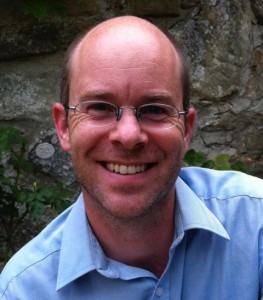 Michael Lacewing
Michael Lacewing
Michael Lacewing is Director of Research and Senior Lecturer in Philosophy, Heythrop College, University of London; and Honorary Reader in the Research Department of Clinical, Educational and Health Psychology at University College, London. He is on the Executive Committee of the British Philosophical Association. He has written several textbooks for A level philosophy, as well as a number of articles on P4C and academic philosophy, and trained 100s of school teachers. His research interests lie in the philosophy of psychoanalysis, metaethics, and empirically-informed moral psychology, and he is currently editing the Oxford Handbook of Philosophy and Psychoanalysis.
Philosophy, Academic Philosophy, and Philosophy for Children
Abstract:What is philosophy? And what good is it for? How are these questions related to what is studied in philosophy courses at university? I argue that doing philosophy – philosophizing – is both the origin and the heart of what philosophy is. As a result, the methodology involved in Philosophy for Children counts as philosophy, and shares important similarities with what academic philosophers do. I go on to argue that doing philosophy aims at achieving truth, understanding and a good life, aims shared by P4C but not always by philosophy courses. I conclude by reflecting on what studying philosophy can and could achieve.
Megan Laverty
Megan J. Laverty is Associate Professor and Acting Director of the Philosophy and Education Program at Teachers College, Columbia University. Her research interests include moral philosophy, philosophy of education and philosophy for children
Ann Margaret Sharp: A Life Teaching Community
Co-author. See “Maughn Gregory” for abstract
After earning my MA in philosophy, I realized my next goal was bringing philosophy to everyday life, and the natural choice was Philosophy for Children. Later I accepted a position in another unique program, this time an interdisciplinary teacher education graduate program. Here I employed dialogical pedagogy, philosophical way of knowing and action research and self-ethnography as a unique teacher product. These days I facilitate a group of pre-service teachers as well as developing professional development teacher leadership program. In my work I try to engage in alternative formats of teaching, learning and assessing.
Promoting Creativity through Philosophical Dialogue in Teacher Training
Abstract:Based on an understanding of the importance of creative thinking and the strength of philosophical dialogue to develop creative thinking, we seek to promote the development of creativity-enhancement measures as part of pre-service teachers’ training programs. In the new national program “Academy-Classroom” and as part of their practicum, pre-service teachers are given a unique opportunity to work 3 days a week in schools, including small group learning sessions. This allows a more realistic framework for building a genuine learning community, an experience that advances both teachers’ professional satisfaction as well as young students’ personal, social and academic needs.
Initially a primary school teacher, school governor then teacher trainer, Lizzy Lewis is a UK based consultant and speaker, specializing in Philosophy for Children (P4C). Her current roles include P4C school training (as a registered SAPERE Trainer), Development Manager for SAPERE (UK charity promoting P4C), Partner of A Level Philosophy and Secretary of ICPIC (The International Council of Philosophical Inquiry with Children). Lizzy has published articles in this field and co-edited Philosophy for Children through the Secondary Curriculum, Continuum, 2012. Lizzy is a Director of Thinking Space, on the Advisory Board for BRILA Youth Projects and Associate of the Philosophy in Education Project.
Community of Inquiry as a teaching strategy in Teacher and Higher Education
Abstract:
This paper will present recent work in the UK that brings together academics, university students, and schoolteachers in collaborative work on philosophical inquiry in schools. There have been promising developments in pre-service teacher education with 40 teacher educators trained in Philosophy for Children (P4C) resulting in 10 university partnerships with SAPERE. These partnerships support universities to provide P4C training in their institutions, form links with schools and promote philosophical inquiry as a pedagogy. Feedback reveals that student teachers who have had P4C training reassess their expectations of what children are capable of; in particular their capacity to think. The P4C programme also encourages trainee teachers not only to philosophise, but also to see the philosophical potential of curriculum topics and to develop ways to integrate philosophical inquiry across subject disciplines. This kind of feedback suggests that P4C promoted as a teaching strategy in teacher and higher education might help effect some of the educational changes that Matthew Lipman aspired to.
Margaret is an Associate Professor in Early Childhood Education at Simon Fraser University. Her research interests include intergenerational teaching and learning, Pedagogical Documentation, and responsive curriculum development in early childhood education.
Using Engaged Philosophical Inquiry to Deepen Young Children’s Understanding of Environmental Sustainability
Abstract: The following paper and presentation explores the use of Engaged Philosophical Inquiry (EPI) as part of our foundational curriculum on sustainability (MacDonald, 2015). The purpose of our research is to address the question: How do young children (aged 4) philosophically engage with concepts related to environmental sustainability and stewardship? Working from the premise that an authentic community of inquiry grows out of a joint intellectual restlessness and curiosity and a need to learn about the world around us, we interrogate issues related to sustainability and stewardship. During our EPI sessions, we guide the children’s advances toward the use of logic and argumentation (Gardner, 2009), however we are primarily concerned with the development of the children’s capacity to listen and take into account the perspectives of others within a democratic participatory community of learners (Cam, 1998, 2000; Dewey, 1954; Dahlberg & Moss, 2005; Lipman, 2003, 2009; Malaguzzi, 1994). Using video and audio recordings we transcribe and analyze the dialogue and interactions that take place weekly among a group of 9 children and our Philosopher in Residence (Warren Bowen) during pre-discussion activities and EPI sessions to determine how we (ourselves and the children) are engaging with the questions raised and the concepts introduced. For this presentation our intention is to show a brief pedagogical documentary (10 minutes) highlighting the children’s inquiry into animism and living and non living aspects of the forest as part of a larger inquiry into sustainability and stewardship.
Kerstin Michalik
Kerstin Michalik is Professor at the Faculty of Education, University of Hamburg (Germany) with a specialization in the Didactics of Primary School Teaching. She studied History, Philosophy and Educational Science at the University of Hamburg and the Sorbonne University at Paris. She has worked as a philosophy teacher in secondary schools and is now teaching pre-service teachers. She is interested in the implementation of philosophical inquiry in primary and secondary schools. Her research aims to deepen the understanding of children’s ideas and perceptions about natural and social phenomena and to explore effects of philosophical inquiry on children as well as on teachers
Philosophizing with Children as an Element of Teaching and Learning
Abstract Forthcoming
Olivier Michaud is professor of educational foundations at the Université du Québec à Rimouski (Québec, Canada). He studied philosophy of education, Philosophy for Children and qualitative studies for his doctoral degree at Montclair State University. His doctoral thesis was a qualitative study on the subjects and interrelationships between authority, democratic education and philosophy for children as they were lived in a kindergarten classroom in an American public school. His current interest of research is to continue to study how the practice of philosophy in k-12 education fosters democratic education.
The Community of Inquiry as a Spiritual Exercise
Abstract: The relationship between P4C and CPI is rooted in the historical context in which it was created: pragmatism. Pragmatism, as a philosophical movement, has been highly influenced by the scientific method. Consequently, in that perspective CPI, as a communal and rational process, is one of the best methods we have to resolve a problem, to discover truth or to establish what to do. This presentation aimed to propose a concurrent vision of what CPI is. This concurrent vision comes first from my experience of P4C in multiple settings: as a participant in different seminars, as a facilitator of P4C with elementary and college students, and a qualitative researcher who studied that program. Hence, in all these experiences I came to realize that CPI was less a process of moving from a question or a problem to an answer or a solution, but rather as an experience of creating more problems and puzzlement regarding the subjects discussed. Using Parker Palmer and Pierre Hadot, I propose that my experience inside CPI points out toward its spiritual dimension. Therefore, the goal of this presentation is to clarify how P4C can be considered as a spiritual practice and what there is to gain in engaging in CPI with that perspective in mind.
Stephen Kekoa Miller has taught Philosophy and Religious Studies at Oakwood Friends School and Marist College in Poughkeepsie, New York for 15 years. Stephen has run a wide range of courses with 5th graders up through upper year college students and parents of high school students Stephen’s research interests lately have centered on pre-college philosophy, virtue ethics and emotions. Stephen has presented at ICPIC, APPE and PLATO Conferences and recently received PLATO’s Knisely Award and the Best Formal Paper on Pre-College Ethics Award by the Association for Practical and Professional Ethics
Contesting Harmful Representation Using the Community of Inquiry Model
Abstract: Recent events in the United States point to the dire need to counter harmful unconscious bias. Reams of evidence now exists that literal pre-judgement in regards to race, sex, ethnicity, age and religion among other categories strongly affects our behavior in ways that when we consciously contemplate it, we would condemn. The way we use language often encodes unconscious value systems. While this field of research is new, many now suggest the way to combat unconscious bias involves bringing the bias to consciousness through discussion. This presentation will explore some central challenges of using a Community of Inquiry model to dispel such bias.
Sabrina D. MisirHiralall recently defended her dissertation De-Orientalized Pedagogy: Educating Non-Hindus About Hinduism Through Kuchipudi Indian Classical Hindu Dance in the Pedagogy and Philosophy program at Montclair State University. Sabrina focuses on how she uses Kuchipudi Indian classical Hindu dance to educate non-Hindus about Hinduism with postcolonial realities in mind. Sabrina aims to develop a de-Orientalized postcolonial pedagogy to confront Orientalism and the long legacy of colonization. Sabrina is often invited to lecture and dance in higher education as she presents on Hinduism with postcolonialism in mind. She teaches Philosophy of Education and History of American Education part-time at Montclair State University. She also teaches philosophy courses as well as Student Success part-time at Middlesex County Community College.
De-Orientalizing Kuchipudi Hindu Dance Through Dialogue in a Theatrical Space
Abstract: I employ Kuchipudi Indian Classical Hindu dance as a stimulus within a community of inquiry in a variety of pedagogical spaces. Particularly, I encounter a dilemma when I dance in a theatrical space that does not engage in verbal dialogue with the viewers of the dance. This lack of verbal dialogue may block my purpose as a Kuchipudi dancer, which is to educate non-Hindus about Hinduism to confront the legacy of colonization that causes misrepresentations and misconceptions of Hinduism to develop. Yet, I hope to engage in a community of inquiry in a theatrical space despite the lack of verbal dialogue in an effort to educate with postcolonialism in mind.
Richard (Mort) Morehouse is Professor Emeritus in Psychology from Viterbo University (La Crosse, WI, USA). He is also Visiting Professor at the School of Education and Community, Glyndŵr University Wrexham, Wales, UK. He has worked in Philosophy for Children since 1980 and has taught Psychology and Education for more than 30 Years. He is Past President of the North American Association for Community of Inquiry and the author of Beginning Interpretative Inquiry: A step-by-step guide to research and evaluation (2012).
Combatting Consumer Madness
—
Ann Margaret Sharp: A Life Teaching Community
Co-author, See “Maughn Gregory” for Ann Margaret Sharp: A Life Teaching Community
Co-author, See “Susan Gardner” for Combatting Consumer Madness
Karen J. Myskiw
Biography & Picture Forthcoming
The Community of Inquiry as Research Method in an Encounter Between Western Philosophy and Canadian Indigenous Living Theory
See “Darren Garside” for abstract
PhD in Education, Oliverio is post-doctoral researcher at the SInAPSi Centre (University of Naples Federico II). Since 2013 he is the vice-president of the International Council of Philosophical Inquiry with Children (ICPIC). His main areas of research are: the educational implications of the epistemological debates within the Vienna Circle; the tradition of American Pragmatism with a special focus on Dewey’s reflection on education, community and science; the curriculum of Philosophy for Children; education and cosmopolitanism. He is the author or the co-editor of twelve books and of several essays in international journals and volumes.
Ann Margaret Sharp: A Life Teaching Community
—
Community of Inquiry in the Lens of Complexity Theory
Co-author, See “Maughn Gregory” for Ann Sharp
Co-author, See “David Kennedy” for Complexity Theory
Joe Oyler is the Coordinator of Project BUILD and a Research Associate with the Dialogic Teaching Project at Montclair State University. His teaching and research interests revolve around the use of discussion based practices and philosophical content as ways of exploring the world and our place within it. Joe teaches undergraduate and graduate courses in Philosophy, Philosophy of Education, Critical Thinking and Dialogic Teaching. His current research aims at developing a deeper understanding of how experienced facilitators engage students in inquiry dialogue.
Learning About the Facilitation of Inquiry Dialogue with the Argumentation Rating Tool
—
Author Meets Critics: Conscience in Moral Life
Co-author, See “AlinaReznitskaya” for Learning About the Facilitation of Inquiry Dialogue
Co-author, See “Jason Howard” for Author Meets Critics: Conscience in Moral Life
Ignacio Garcia Pedraza
Biography & Picture Forthcoming
Developing Cosmopolitan Thinking Through Philosophical Inquiry
Co-author, Not in Attendance
See “Maura Striano” for abstract.
She is a Research Assistant at the Faculty of Education, University of Hamburg (Germany). She studied Philosophy (M.A.) and Psychology and has a degree in communications (KAH, Hamburg) and integrated cognitive behaviour therapy (KVT). She has been working at schools teaching philosophy and philosophizing with children. She examines the effect of philosophical inquiry on self-concept clarity and self efficacy.
Philosophizing with Children as a Model for Teaching and Learning
Abstract Forthcoming
Shannon Proctor is an Assistant Professor of Philosophy in the Humanities Department at LaGuardia Community College (CUNY). She received her Ph.D. in philosophy from Michigan State University in 2013. Her work explores the connections between and among feminist theory, phenomenology, and social and political philosophy, with a particular focus on the ways in which bodily habits both impede and engender social transformation. She is additionally interested in projects aimed at extending philosophy beyond the classroom, including LaGuardia’s Philosophy for Children initiative and Philosophy Goes to the Movies, and is working to develop a prison outreach program with philosophy majors.
CUNY LaGuardia’s Agora Initiative: A Feasibility Study of Philosophy for Children Outreach at the Community College Level
Co-author, See “Cheri Lynn Carr” for abstract.
Alina Reznitskaya
Alina Reznitskaya is Professor in the Department of Educational Foundations at Montclair State University. Her background includes studies in educational psychology, quantitative research methodology, and psycho-educational measurement, and she teaches undergraduate and graduate courses on these topics. Her research focuses on developing and evaluating instructional strategies that support teachers in their use of classroom talk to promote student learning. Dr. Reznitskaya’s work has appeared in a variety of journals and edited books, including Educational Psychologist, The Reading Teacher, Contemporary Educational Psychology, Cambridge Journal of Education, Elementary School Journal, Discourse Processes, Comprehension Instruction: Research-Based Best Practices, and Positive Psychology in Practice.
Learning About Facilitation of Inquiry Dialogue with Argumentation Rating Tool
Abstract:
The paper describes the development and validation of the Argumentation Rating Tool (ART). The ART is an observational rating scale designed to help elementary school teachers evaluate their facilitation during class discussions in language arts classrooms. The users of the ART observe a segment of a discussion and rate the quality of teacher facilitation and student argumentation using a 6-point scale. Designed to support professional development and research efforts, the ART helps to engage teachers in a systematic assessment of their practice and to promote reflection on the role of language in student learning. We present the theory and research on reliability and validity of the ART, and discuss the ART’s usability and instructive value for practitioners.
Adolfo Agundez Rodriguez’s research attests to his main commitments: to the rights of all human beings, to the environment, to childhood, to education as the driver of social change, to literature as the best way to narrate human experience, and to reflection as the indispensable tool for rethinking, rediscovering and recreating society and our world. His main research topic consists of developing, implementing and evaluating educational materials to provide consumer and environmental education in elementary schools and to help develop a complex understanding of consumerism and environment, not only from a socio-political and economic perspective but also and above all from an ethical perspective.
Developing Cosmopolitan Thinking Through Philosophical Inquiry
Co-author, not in attendance
See “Maura Striano” for abstract
 Maria del Rosario del Collado Azuela
Maria del Rosario del Collado Azuela
Maria is a doctoral student in Human Development in Motolinia University and is also a teacher in the Master of Human Development in the Iberoamericana University and in Motolinia University in Mexico City. She has been a teacher trainer in P4C for more than 20 years of practice. Maria is the owner of the “Dialogando Center”. She has a ,aster in Human Development in Iberoamericana University, and is currently the coordinator of P4C in Montini Elementary School.
Community of Inquiry and Carl Rogers’ Person Centered Therapy: Perspectives on Growth
Abstract: The objective of this paper is to review how the Community of Inquiry from the perspective of Lipman and Sharp can be used as a tool for facilitating the growth of the person, with the incorporation of some of the basic elements and attitudes of the Person Centered Approach of Carl Rogers: Identity, Authenticity, Empathy , Congruence, Positive Regard, Growing Tendency. This Psychological approach can be helpful in the establishments of conditions for the improvement of the Community of Inquiry as an educational model and the personal growth of its members.
Dr. Shaham holds a PhD in math education, and these days she serves as the Head of Elementary department in teacher education program at Beit Berl college, Israel. Cahit: “In my work I train pre-service elementary teachers in both pedagogic and didactic aspects of the classroom experience. My goal is to cultivate teachers and educators with a pedagogic and professional foundation and deep disciplinary knowledge. In addition to my service and teaching, I develop educational materials geared towards the early childhood math education, a subject close to hear, on which I have also published extensively”
Promoting Creativity through Philosophical Dialogue in Teacher Training
Co-author, see “Maya Levanon” for abstract
Farzaneh Shahrtas is a PhD student at Gyeongsang National University (Korea) in the Department of Ethics, She is an Independent Researcher, Publisher, Writer, Translator, Editor, as well as a P4C and Science Teacher Trainer in Ministry of Education of Public and Private primary Schools.
Digital Community of Inquiry
Abstract:
This paper presents a co-coaching model in teacher education based on philosophical pedagogy in digital environment. The purpose of this co-coaching model is to teach and cultivate “reflective thinking” including critical, creative and caring thinking along with higher-order discussion skills among experienced and novice Thinking/P4C teachers in Iran. Combining the face-to-face “Community of Inquiry” framework during the workshops and “Digital Community of Inquiry” afterwards as an ongoing experience among Thinking/P4C teachers during the last eight years since 2008, is designed to help volunteer teachers in learning reflective thinking and overcome their problems as a reflective thinker in their Thinking/P4C classrooms.
Peter Shea began working in Philosophy for Children in about 1978. He conducted several long programs in Minnesota schools, taught parent and teacher courses, and served as the Stories columnist for Thinking. He produces a cable show, The Bat of Minerva, and contributes to a streaming archive about the lives of thoughtful people. He has a PhD in moral philosophy from the University of Minnesota and has taught at several Minnesota colleges. His most recent interest is in building bridges between the United States and German-speaking countries. His most recent teaching explores the value of story circles and their relationship to other democratic education strategies.
How can Communities of Inquiry help shut down the United States?
Abstract:As human circumstances change, institutions, especially large institutions, sometimes outlive their purposes, or become temporarily irrelevant. A lake cabin is not useful in the winter. A nuclear reactor may create an unacceptable level of waste. In both cases, it is important that they be shut down right. Some climate news suggests that many large things will have to be shut down, or will simply end, quite soon. If that is correct, how can philosophic reflection help to shut such things down well?
Damian Spiteri
Dr. Spiteri comes from a teaching and a social work background. He has researched different aspects of the life-course transitions of young people, including minor asylum seekers and young people in care. He has also written about how different pedagogies can be successfully applied in the teaching of social work, and he is the author of a book on multicultural education in university and college settings. He has convened, chaired and presented, on both teaching and social work, at many conferences, seminars and meetings, in various countries in Europe. Dr. Spiteri has also coordinated several youth work projects and initiatives, and has been a regular speaker, on topics of a social interest, on various popular television and radio shows, in his native country of Malta.
Author Meets Critics: Multicultural Education in Colleges and Universities: Developing Strengths-Based Narratives for Teaching and Learning
—
The community of Philosophical Inquiry in a Multicultural Context.
Author Meets Critics: The book is divided into seven chapters. It starts out by questioning what multicultural education is and emphasises the role of compassion in creating multicultural educational contexts. It also shows that by emphasising what students can do, rather than what they cannot do, the net result is that they feel better about themselves – this book shows how this tenet is also applicable in intercultural encounters.
—
Community of Philosophical Inquiry in a Multicultural Context: This presentation is focused on exploring how young people from different cultural backgrounds can be empowered to engage in dialogue on topics that they see as meaningful in such a manner as to effectively form themselves into a community of inquiry. It applies theoretical inputs from eco-systemic theory and shows how different factors impinge on how people bond together in group contexts. The study is a small scale study and is based on an appraisal of a set of six two hour sessions that the researcher facilitated with a group of eight teenagers who volunteered to participate. They were all students at a college, in Malta, where he lectured. Four of them were from his native island of Malta, and the other four were asylum seekers from Ethiopia and Eritrea. The sessions were focused on engaging the participants in exploring their understanding of (i) pleasure and enjoyment, (ii) friendships and relationships; (iii) feeling and thinking; (iv) plans and destiny, and (v) losses. The final session, which was conducted after these five sessions were completed, was an evaluation session. It was aimed at gathering an understanding of what being in a community of inquiry meant to the participants, and also understanding what induced them to volunteer to participate and to participate fully in the sessions
Maura Striano
Maura Striano is full professor of Education at the Department of Humanities, University of Naples, Federico II. She is Scientific Responsible of the Educational Section of the Center for Active and Participatory Inclusion for Students .She is Coordinator of the Phd courses in Psychological and Pedagogical Sciences and in Mind, Gender and Language. Her main research topic is thus the possibility to educate for a reflective thinking at different levels. Her most recent research is focused on adult learning, the construction of supportive learning environments, the development of personal and professional identities, the development of educational practices to support social inclusion.
Developing Cosmopolitan Thinking Through Philosophical Inquiry
Abstract:
The paper is aimed at introducing to a broad audience of scholars and practitioners in community of inquiry a set of tools developed and validated within a three years action-research project funded by the European Commission aimed at developing, testing and fine-tuning a new curriculum (composed of philosophical novels and manuals) designed to sustain the development of a cosmopolitan frame of mind through philosophical inquiry.
Ariel Sykes has her BA from Mount Holyoke College and her MA from Teachers College, Columbia University. Her interests are in Philosophy of Education with a specific focus on Philosophy for Children. Ariel currently works with the Dialogic Teaching Project at Montclair State University and adjuncts at a few colleges in New Jersey. She is an endorsed practitioner of the IAPC.
Learning About the Facilitation of Inquiry Dialogue with the Argumentation Rating Tool
Co-author, See “Alina Reznitskaya” for abstract
Ayperi Dikici Sigitmac is an Associate Professor at the Faculty of Education, Early Childhood Education Department, Turkey, University of Cukurova. Her interests are play development in early childhood and special education. Also, she worked as a teacher in a Special Education Center for two years.
How P4C Effects Creativity and Theory of Mind in a Turkish Kindergarten: A Practical Study
Co-author, not in attendance.
Isil is serving as a Research Asisstant in the Department of Early Childhood Education at Cukurova University in Adana, in Turkey. She was first acquainted with Philosophy for Children at one of my PhD courses in Turkey. Isil was a Visiting Scholar at the Department of Educational Foundations, Montclair State University for the academic year of 2014-2015. Nowadays, she is completing her PhD thesis which investigates the effects of P4C on kindergarten childrens’ creativity and ToM( Theory of Mind) development.
How P4C Effects Creativity and Theory of Mind in a Turkish Kindergarten: A Practical Study
Abstract:
In this study, the effects of Philosophy for Children (P4C) on kindergarten childrens’ creativity and Theory of Mind (ToM) development were investigated. Most existing education programs do not encourage students to engage in conversation, to ask questions and to reflect on their opinions, especially in preschool education, where theory and practice is heavily influenced by a strict interpretation of Piaget’s claim that young children are inherently pre-logical. In Turkey this implicit ban is even stronger, due to the limited number of teachers, specialists and academicians studying P4C. As of now no qualitative practical study investigating P4C has been carried out there. This study is recently completed in the city of Adana, Turkey, among five year olds, where I focused on how a class of 33 kindergartners’ thinking and speaking changed over the course of 14 weeks of twice-weekly P4C sessions, with particular attention paid to creative thinking and to the development of Theory of Mind (TOM). My analysis is based on thorough and extensive videotape documentation and transcription, and includes data gathered from interviews with individual children, parents and teachers. The study included two kindergarten control groups, and pre and post-tests for measuring creativity (Torrance Creativity Test) and Theory of Mind (1st and 2nd order belief task tests). Control and experimental groups’ scores statistically measured if there is a significance difference between those groups. This study was supported by Çukurova University Rectorate Coordinatorship of Scientific Projects, Project No. SDK-2015-3586
Mark Weinstein holds the PhD from the City University of New York with a specialization in Philosophy of Science. He is a Professor in the Department of Education Foundations at Montclair State University where he served as Associate Director of the Institute of Critical Thinking. He has published widely in critical thinking, informal logic and argumentation theory including a number of edited volumes relating critical thinking to the humanities, social and natural sciences and teacher education. His most recent effort is a volume, Logic, Truth and Inquiry published on a series: Studies in Logic and Argumentation by College Publications of London University.
On the Relevance of Cognitive Neuroscience for Community of Inquiry
Abstract:
This paper will look at the recent research including speculations from neurological modeling that shows the depth of connection between, emotions, memory and reasoning. It will draw implications for dialogic thinking within a community of inquiry including systematic self-reflection as an essential aspect of critical thinking.
Ian Wilkinson
Co-author, Not in Attendance
Learning About the Facilitation of Inquiry Dialogue with the Argumentation Rating Tool
See “Alina Reznitskaya” for abstract
Arthur is a PhD student at the University of British Columbia. He is not quite a candidate yet although he certainly is moving in that direction and looking forward to its effect. Wearing Deleuzean goggles, which are removable, he enjoys setting up all kinds of pedagogical relationships like, for example, with children at the Think Fun Philosophy summer camps in the greater Vancouver area. Increasingly encumbered by the lumbering weight of preparing his thesis proposal he is focussed on making delicious free range chocolate truffles. His recent foray into the world of Amaretto soaked tiramisu while listening to Eddie Izzard has provided him with alternative distractions.
Facilitating for intensities: Deleuzean resonances in/of a community of philosophical inquiry
Abstract: Philosophy for Children (hereafter referred to as P4C) and its key concept of the Community of Philosophical Inquiry (hereafter referred to as CPI) has become a popular pedagogical approach (see for example Brenifier & Millon, 2015; Cam, 2014; Lipman, 2003; Murris, 2015; Splitter, 2014; Topping & Trickey, 2014 and Vansieleghem & Kennedy, 2012). Notwithstanding its popularity, there are several underrepresented theoretical approaches in its literature. One such new conceptual lens through which P4C and CPI as a pedagogy might be strengthened and theoretically further reinforced is that of ‘intensity’, as worked out by the post-structuralist French philosopher Gilles Deleuze. Here we will take up Deleuze’s theorisation of intensity and bring it into dialogue with the concept of CPI. The main aspects of CPI we focus on are the role of the facilitator and the concept. It is with these two aspects that intensity operates undercover, secretly, amorously and fatally. Using examples we will see how a Deleuzean facilitator might become more aware of, and, learns how to play with intensities. In this way, going back to and following Lipman we see how “[i]n order to be successful, the teacher must not only know philosophy, but know how to introduce this knowledge at the right time in a questioning, wondering way that supports the children in their own struggle for understanding” (1980, p. 83; italics added).
